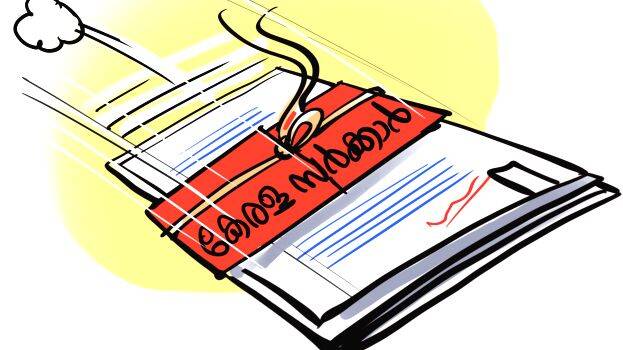

Although it is the duty of government officials to provide reasonable services required by the public, delaying this is a practice followed by most officials. Some government officials behave as if it is not their duty. Since beggars can't be choosers, the public is forced to go to government offices again and again for services. The fact that most services can now be obtained by applying online is a great relief to people. This is a benefit that technological advancements have brought to the people. However, some services still require people to go to the offices in person. Given this situation, the state cabinet has approved a bill to implement the new Right to Service Act, which will impose a fine on the concerned official if there is a delay in providing services to the public from government offices. The approval of this bill by the state cabinet is a very commendable step.
Although the Right to Service Act was introduced in the state in 2012, the provisions to prevent default in service were weak. Moreover, the act did not have a provision to impose a fine on an officer who defaults in providing service to an applicant within the specified period. Thus, the existence of the law became the same as its absence. The new act will determine a time limit for providing service. It is the responsibility of the offices to inform the applicant about the progress of the proceedings. In case of default, a fine ranging from Rs. 2000 to Rs. 15,000 can be imposed. It is expected that the new act will help to avoid the backlog of lakhs of applications.
Even though the Chief Minister has reminded that 'each file is a life', lakhs of files are still pending in government offices. Even though file adalats have been held to resolve these files pending in the directorates of departments at the earliest, not even half of them have been resolved. It is in this context that the government is introducing the Right to Service Act with strict conditions. It has been delayed for so long due to the opposition of service organizations. It is a strange phenomenon that the attitude of officials changes when they get government jobs and become an 'organized section'. A large section of officials see those who come to them seeking services as time-wasters and troublemakers. Many government officials do not even think that they are getting paid to provide the fair services that the public demands.
Government employees' organizations had raised big objections and held grand protest programs even for computerisation. Now their workload has been reduced to the minimum by the same computer. Similarly, when the Right to Service Act comes into effect, the officer will be responsible for completing the work on time. This will ultimately reduce the workload and will be beneficial for the officers in the future. The public will also feel that service has become their right. The public realizes that there is a functioning government in the country when services are provided without delay upon application submitted with the necessary information and documents. Even though it is so late, the government moving forward with the Right to Service Act, despite the opposition of service organizations, will be very beneficial for the people in the future.